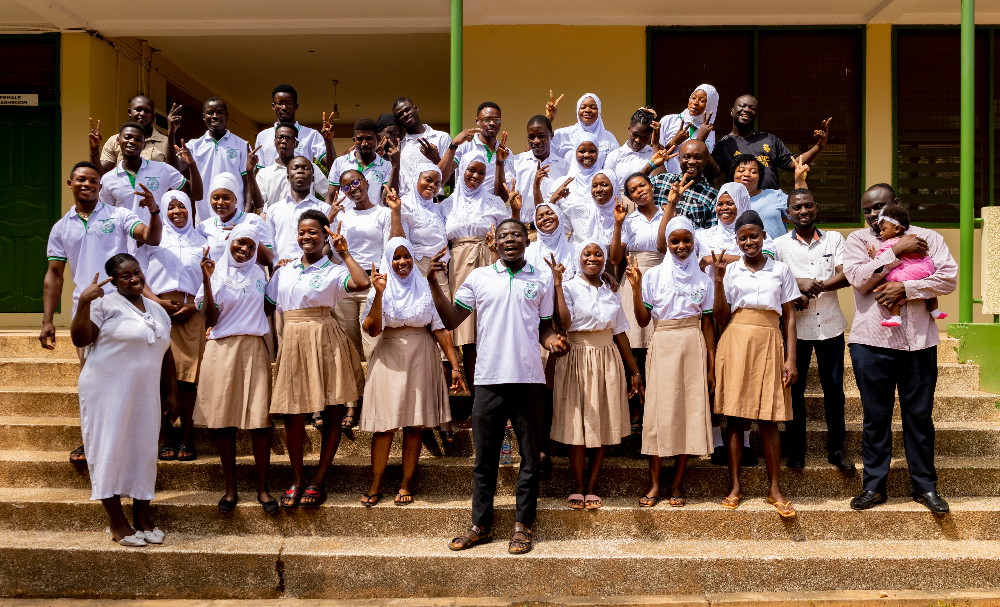The KNUST Nutrition and Sustainable Agri-Food Collaborative, under the Mastercard Foundation’s Nkabom Collaborative Project, is deepening its impact on agricultural education through the extension of its transformative agribusiness training to the Damongo Agricultural College (DAC) in the Savannah Region.
The ongoing 10-day training forms part of the Collaborative’s nationwide initiative to nurture entrepreneurial thinking among agricultural students and tutors.
It aims to empower 30 participants with the practical knowledge and skills needed to transform Ghana’s agricultural landscape into one that is innovation-driven and economically sustainable.
Facilitated by tutors who benefited from the maiden Trainer of Trainers (ToT) programme at KNUST, the Damongo session introduces students to modules on mindset transformation, time management, business planning and value addition across the agricultural value chain.
Participants have described the training as an eye-opener that has reshaped their perception of agriculture and business.
Michael Dervar Diongviel, a participant, said the sessions had deepened his understanding of entrepreneurship and would, in the long run, enhance his problem-solving abilities.
He explained that he had now learnt to distinguish between an entrepreneur and a businessman, noting that “an entrepreneur identifies a problem in society and turns it into a business opportunity by finding solutions, while a businessman focuses mainly on making profit.”
Diongviel added that lessons on critical thinking and effective time management had transformed the way he organises his activities.
“The most fascinating thing I have learnt is how to prioritise tasks using the Eisenhower Matrix. It has taught me how to plan my day better and stay focused on what really matters,” he said.
He added that the training had opened his eyes to several opportunities along the agricultural value chain. “After a few days of attending the classes, I have realised many viable business ideas, including producing organic and eco-friendly pesticides from neem leaves and seeds,” he said.
Another participant, Suale Iptisan, noted that the engaging approach of the facilitators made learning easier and more enjoyable.
“Before coming here, I was not sure how I would connect with the tutors and the sessions. But through the games, group discussions and presentations, I have found myself fully involved and confident to contribute,” she said.
Facilitators believe the initiative will inspire a new generation of agricultural innovators capable of creating employment and driving growth in the sector.
Mrs. Mary Badu, a facilitator and tutor at Damongo Agricultural College, expressed appreciation for the opportunity to host the training, emphasising its importance in motivating students to pursue self-employment.
“Hosting such training sessions will not only motivate students to learn but also boost their entrepreneurial skills, enabling them to start their own businesses instead of waiting for the government to employ them,” she said.

















